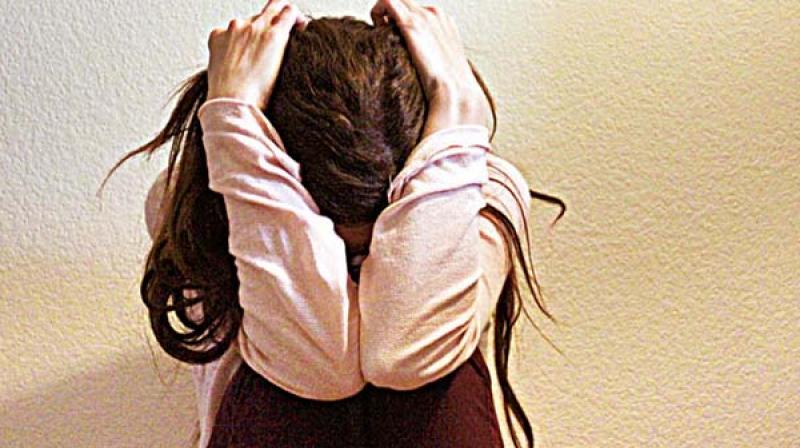After assault: Talks fail to protect women

KOCHI: The abduction and assault of a popular actor on the National Highway near Athani added a fresh chapter to the sordid history of sexual violence against women in Kerala. The brazen manner in which she was assaulted at night and the ease with which the culprits managed to escape show the increasing scale of violence in general and against the women in particular. The incident that would come as a shocker to even those well pickled in the most lurid misogynist fantasies about women actors also raises disturbing questions about our stereotyped notions of violence and responses. The nauseating coverage of the event by a television news channel is a familiar manifestation of the double-mouthed male hypocrisy lurking around in every conceivable public space amidst us.
The frighteningly sickening situation has been ripped apart by a searing comment on Facebook by poet Ra Sh that “the number of masturbating mallu males must have gone up drastically today”. The incident, no doubt, will prompt the moral brigade to cry hoarse about the collapse of the traditional value system for such morbid happenings. It is not uncommon that even people with a little more sanity are gripped by the culture of fear at such instances. The most salutary aspect of this whole incident is the courage shown by the actor to register a complaint and to face the so-called fallout boldly. A slew of actors ranging from Manju Warrier to Rima Kallingal rallying behind her in a bold manner is also a welcome sign.
Notwithstanding her tragic plight, a disturbing aspect of the crime against the actor is the close nexus enjoyed by the perpetrators of the violence with the entertainment industry in the state. How could a person such as Sunil aka Pulsar Sunil having a track record being involved in a slew criminal activities move around with movers and shakers of the film world? The issue also brings to focus why the police failed to intimate the film fraternity about the potential threats from such dubious characters. The normal police version of such a question is that they would act only in the case of a complaint and are not authorised to pursue cases on their own initiative. The lack of facilities for mandatory reporting and social support mechanisms continue to haunt victims of sexual abuse despite the advancement in the awareness about gender-based violence.
Despite some advancement in the legal provisions, the law in the country does not make it mandatory for professionals to report cases of rape despite the soaring number of violence against women. In many countries, especially Scandinavia, it is mandatory for certain professionals such as doctors, teachers, health or social workers to report rape cases that come to their notice. “It is not known how far schools effectively reach out to child victims and report rapes and atrocities. The higher education institutions like colleges have absolutely no mechanism to reach out, convince and help victims to pursue cases," said activist Seema Bhaskar. Only companies having active women’s protection committees help in reporting such cases. The police officials expressed helplessness that they cannot file suo moto cases.
“Even if we hear of someone being raped, we can’t technically go to the victim and persuade them to file a case. Adult victims themselves have to come to us and report. In the case of children, their parents have to come to us," said Thiruvananthapuram DCP Arul R.B. Krishna. "People often found raising allegations of how the police connived with the rapist often forgets such limitations. The trouble is that after a while even the families themselves will not want to pursue cases fearing social repercussions." Mr Krishna pointed out that except Childline there is no institution involved in digging out sexual assault cases and convince the affected to fight the rapist legally. Police officials say that the responsibility of maids, security men or drivers hired by individuals will be their own unless hired from a bona fide organisation. "If an individual goes to police station to verify the antecedents of someone they want to hire, the policemen may not be able to help them," a senior officer said.
Safety at workplace
It is high time the definition of the workplace of women extended. Sexual atrocities at the workplace have multitude of definitions and not limited to the ideal concept of an office environment. For an actress, any place can be her place of work, even a vehicle. Hence, assault against the young actor is a clear case of brutal sexual offence in the workplace. On the relevance of the full-throttled panel discussions on TV channels and heated debates on social media on the topic, I doubt how many of these harsh reactions or strong support are real.
Though such discussions may help to create a sense of unity among women to raise voice against such atrocities, participants should not peddle their own personal or political agenda. I can see a good percent of gender sensitive people on social media or TV channels though they are not present in the real world. We should be careful that every case has to be considered in their proper context. Raising a counter logic by comparing a case with another can’t be justified. I heard many comparing the incident with that Jisha and Soumya cases. It may not serve any purpose other than the violence against women cutting across social and economic barriers.
(Rekha Raj is a Dalit writer and activist)

